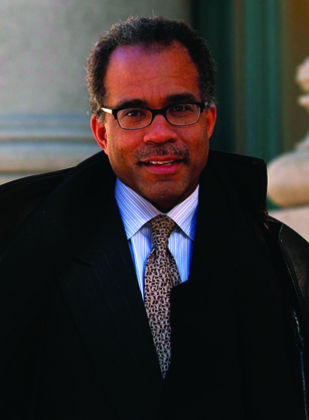In Support of Affirmative Action
Randall L. Kennedy, born September 10, 1954 in Columbia, South Carolina, is an American Law professor and author at Harvard University in Cambridge, Massachusetts. He focuses his research on the intersection of racial conflict and legal institutions in American life, working on the topics of contracts, freedom of expression, race relations law, civil rights legislation and the Supreme Court. Through numerous appearances on the lecture circuit, Kennedy continues to promote debate on hot-button racial issues in the public arena.
I support sensibly designed policies that assist members of racial minority groups in America in competitions for scarce opportunities such as admission to selective college and universities. These policies are known as “affirmative action.” Such policies come in various guises. Some affirmative action programs are light. They offer only a slight advantage to racial minorities whose records are essentially equal to those of white competitors. On the other hand, some programs are heavy. They offer a substantial advantage to racial minorities whose records are distinctly inferior to those of white competitors. The heavier the affirmative action involved, the more controversial it will be. I do not endorse stupid affirmative action – for instance, programs that over-promote individuals, placing them in positions for which they are severely underprepared and therefore unduly vulnerable to failure. But I do endorse intelligent affirmative action programs that offer a helpful boost to individuals affiliated with groups that, absent special treatment, would languish for an intolerably long period in the lower tiers of American society.
There are several good justifications for racial affirmative action in a society that has long been a pigmentocracy in which white people have been privileged and people of color oppressed. Affirmative action can ameliorate debilitating scars left by past racial mistreatment – scars (such as educational deprivation) that handicap racial minorities as they seek to compete with whites who have been free of racial subordination. Affirmative action can also counter racially prejudiced misconduct. True, an array of laws supposedly protect people in America from racial mistreatment. But these laws are notoriously under-enforced. Filing a lawsuit is difficult, expensive, and time-consuming. Moreover, one must have some knowledge of the suspected mistreatment in order to sue. Often, however, racist misconduct is subtle and occurs without the knowledge or even the suspicion of victims. Inasmuch as racial minorities confront a constant wind of racial prejudice, a policy of affirmative action can be justified as a type of prophylactic that is not so much a “preference” as a pre-emptive intervention that adds a bit of equity to what would otherwise be a wholly inequitable competition.
A third rationale for affirmative action and the current favorite in America, especially with respect to college admissions, is that special efforts to insure the presence of racial minorities are justifiable to create racially heterogeneous campuses in which students and educators learn from the experiences and perspectives of people unlike themselves. The idea is that racial diversity is pedagogically useful.
Affirmative action, like all social policies, has costs. I shall mention merely two. Affirmative action prompts many onlookers to devalue the accomplishments of racial minorities inasmuch as they suspect that those accomplishments stem, at least in part, from racial preferences and not wholly from the individual merits of the people being judged. A second major cost is the resentment felt by disappointed whites who attribute their failures to racial preferences afforded to colored competitors.
Under no circumstances should discrimination in favor of racial minorities be permitted if the purpose behind such discrimination is malign – if the purpose is to subordinate whites, to express contempt for them, or to signal a belief in their inferiority. If whites are disadvantaged by programs animated by such purposes they are right to complain that they are being victimized by “reverse discrimination.” As characteristically practiced in America, however, affirmative action is not motivated by any anti-white prejudice. Rather, affirmative action is motivated by legitimate aims – diversity, countering ongoing prejudice, redressing the present consequences of past racial mistreatment. Racial affirmative action imposes costs in seeking to attain these goals. Over the past forty years in America, however, the benefits derived from affirmative action have clearly outweighed the costs.
Cette ressource a été publiée dans le cadre de la deuxième saison du festival "Mode d'emploi", organisé par la Villa Gillet, qui s'est déroulé du 12 au 24 novembre 2013.
Pour citer cette ressource :
Randall Kennedy, In Support of Affirmative Action, La Clé des Langues [en ligne], Lyon, ENS de LYON/DGESCO (ISSN 2107-7029), février 2014. Consulté le 28/01/2026. URL: https://cle.ens-lyon.fr/anglais/civilisation/domaine-americain/immigration-et-minorites/in-support-of-affirmative-action



 Activer le mode zen
Activer le mode zen

![[title-image]1332154742093[/title-image] modedemploilogoweb_1357808113332-jpg](http://cle.ens-lyon.fr/anglais/images/modedemploilogoweb_1357808113332-jpg)
